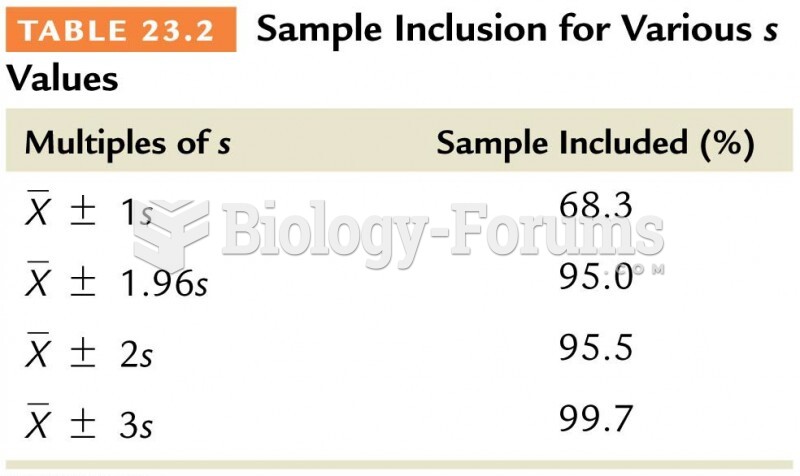|
|
|
Carbamazepine can interfere with the results of home pregnancy tests. If you are taking carbamazepine, do not try to test for pregnancy at home.
The people with the highest levels of LDL are Mexican American males and non-Hispanic black females.
Less than one of every three adults with high LDL cholesterol has the condition under control. Only 48.1% with the condition are being treated for it.
The shortest mature adult human of whom there is independent evidence was Gul Mohammed in India. In 1990, he was measured in New Delhi and stood 22.5 inches tall.
Chronic marijuana use can damage the white blood cells and reduce the immune system's ability to respond to disease by as much as 40%. Without a strong immune system, the body is vulnerable to all kinds of degenerative and infectious diseases.
 This mural depicts the history of Mexico and its struggles to create a just society in the face of ...
This mural depicts the history of Mexico and its struggles to create a just society in the face of ...
 The primary ignition system is used to trigger and therefore create the secondary (high-voltage) ...
The primary ignition system is used to trigger and therefore create the secondary (high-voltage) ...





